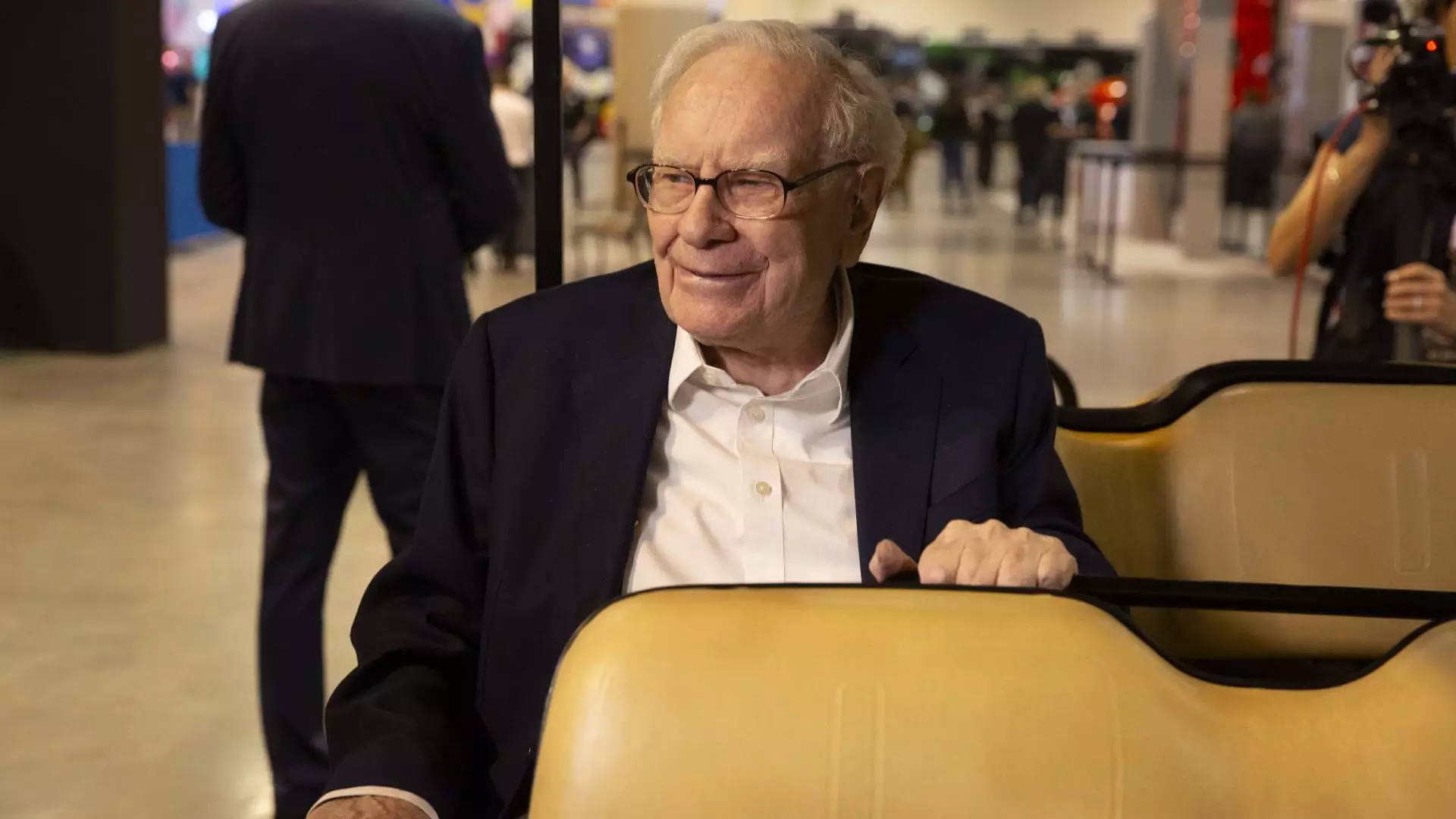Berkshire Hathaway recently reported a remarkable 71% jump in operating earnings, reaching an impressive $14.5 billion in the fourth quarter. This surge is largely attributed to strong insurance underwriting performance, with profits rising 302% compared to the same period last year. The significance of these results cannot be overstated, reflecting not just recovery from previous market challenges but also the company’s robust business model. This financial growth pushed the price of Class A shares up 1.2% in premarket trading, providing a glimmer of hope for investors keen on the company’s profitability.
While the operating profits soared, Berkshire’s investment gains from its portfolio holdings significantly slowed down. This discrepancy raises concerns, as the fourth quarter saw a decline in investment revenue from $29.1 billion to just $5.2 billion year-over-year. The divergence in performance suggests a shift in market conditions influencing the company’s investment strategy. Moreover, Berkshire’s trend of selling equities outpaced its purchases for the ninth straight quarter, leading to total equity sales soaring beyond $134 billion in 2024. These figures indicate a cautious approach from Berkshire, as they appear to be strategically maneuvering in a potentially volatile market landscape.
One of the most discussed aspects of Berkshire’s financial performance is its substantial cash reserves, which have now reached a record $334.2 billion—up from $325.2 billion at the end of the previous quarter. This increase, driven by the selling of large equity positions such as Apple and Bank of America, has left some shareholders frustrated and seeking clarity. They are eager to understand how this cash pile will be utilized in the long term. Warren Buffett, the legendary figure behind the conglomerate, emphasized in his annual letter that this cash position does not signify a retreat from equity investments. Instead, he reassured investors that a significant part of Berkshire’s wealth remains vested in equities.
Despite the record cash reserves, Buffett has expressed a cautious outlook regarding current market valuations, observing that “often, nothing looks compelling.” His comments indicate that while he may recognize opportunities in the market, the risks associated with overvaluation might deter substantial investments at this time. Notably, Buffett has publicly endorsed his successor, Greg Abek, highlighting his confidence in Abek’s capability to navigate emerging investment opportunities, reminiscent of the management style of the late Charlie Munger. This endorsement not only suggests continuity in leadership but also hints at the potential for savvy investment moves when market conditions become favorable.
Interestingly, Berkshire’s buyback activity has remained dormant thus far, with no shares repurchased in either the fourth quarter of the previous year or the first quarter of this year up until February 10. This cessation has caused a spectrum of reactions among investors and analysts. Some exhibit impatience with the ongoing inaction, while others remain confident in Buffett’s long-term strategic foresight. Bill Stone, a company shareholder and chief investment officer at Glenview Trust, suggested that these cautious measures provide a safety net, allowing Berkshire to emerge stronger and capitalize on potential market downturns.
As investors reflect on Berkshire’s performance, it’s essential to recognize the strength of the past year. The company posted a remarkable 25.5% rise in value during 2024, outpacing the S&P 500. This performance positions Berkshire favorably as it enters 2025, with shares already climbing more than 5% this year. Though shareholders have pressing questions regarding its hefty cash reserves and future investment strategies, the company’s recent operating earnings reflect a resilient business poised to navigate economic fluctuations. This blend of caution and strategic positioning may ultimately prepare Berkshire Hathaway for significant opportunities in the future. Such a dual approach encapsulates Buffett’s legendary investment philosophy, demonstrating that patience often underpins the cultivation of wealth.

